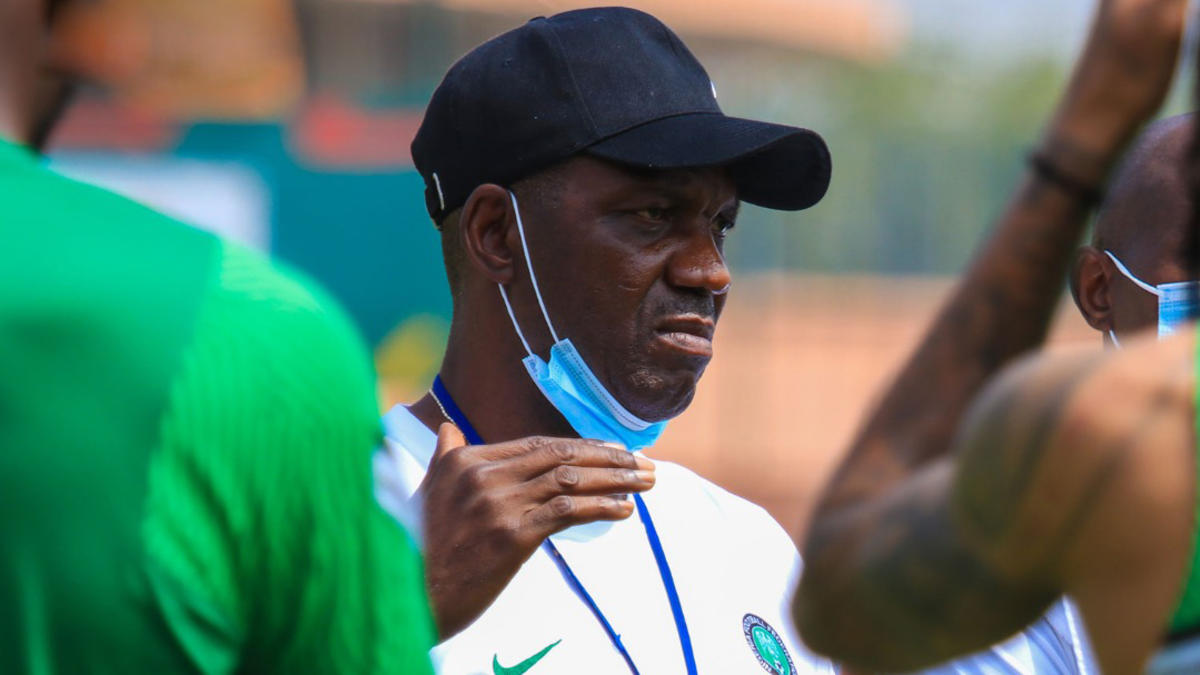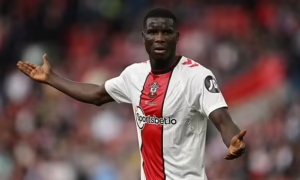Many football pundits and followers in Nigeria have been taken on a ride by the performances of the Super Eagles in the ongoing 2021 TotalEnergies Africa Cup of Nations in Cameroon where Nigeria has won all three matches in Group D convincingly, while playing a very attractive brand of football, most notably against the Pharoahs of Egypt in their opening match.
Nigerians nearly gave up on the national team during the reign of Franco-German coach, Gernot Rohr, who was relieved of his responsibilities as Technical Adviser last month, weeks to the commencement of the biggest football fiesta in Africa. The decision to sack Rohr was a matter of ‘when it will happen’, not ‘if it will happen’ and the Nigeria Football Federation (NFF) made the decision public in December 2021 and appointed current Technical Director, Austin Eguavoen on an interim basis till the end of the tournament in February.
Portuguese manager Jose Peseiro was appointed as the new Super Eagles coach who will take over from Eguavoen after the 2021 AFCON. Peseiro’s appointment was greeted with mixed emotions among Nigerians because of his unimpressive track record in his previous jobs. The opposition to the Portuguese’s appointment has increased in recent weeks as the Super Eagles are exceeding expectations in Cameroon and Nigerians and the rest of the world have taken notice of the team and interim boss, Eguavoen.
Many have glamoured that Eguavoen should be given the role beyond the 2021 AFCON, saying that something has clicked among the players which has seen the team excel. Some of the players have spoken of the freedom afforded to them by the former international to express themselves, this, they say, has brought out the best in their performances.
This write-up may not resonate with the popular demands of the Nigerian football community, but it is worth taking a closer look at the importance of the role of a technical director, be it with a national team or at the club level. I will also try to pen down my opinion on why I think Eguavoen should return to his role as Technical Director at the end of the tournament.
The term ‘technical director’ is not popular in Africa, but there are whispers that Nigeria National League (NNL) side, Vandrezzer FC are working to appoint a technical director to work with their sports science department. This will be the first in Nigeria and perhaps a good time to look at other climes, especially, the much adored and followed European leagues.
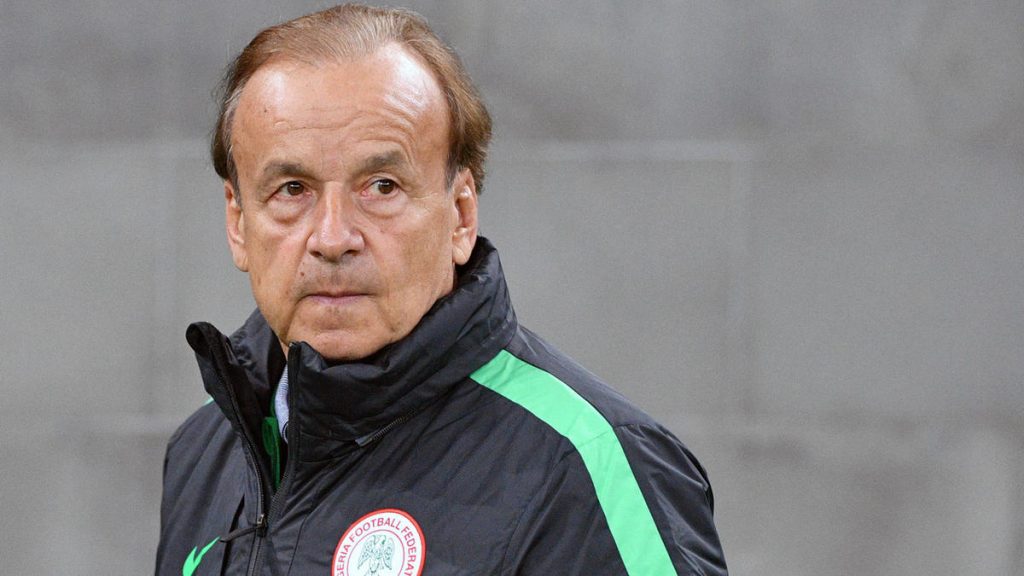
THE TECHNICAL DIRECTOR
There are currently five Premier League clubs employing ‘technical directors of football’, showing that the use of the title is increasing. Although its genesis and original remit remain a mystery, a select few have successfully interpreted its meaning.
Despite existing for over thirty years, the role of the technical director has yet to receive a concise and agreed-upon definition. The title is often used interchangeably with the director of football, director of football operations, and sporting director, though none of these designations provide an insight into the role.
In May 2017, former Arsenal manager, Arsene Wenger, who is one of the most decorated and celebrated coaches in world football told reporters he does not understand what a director of football means.
Wenger said: “No, director of football, I don’t know what it means. Is it someone who stands on the road and directs the players left and right? I never understand what it means, director of football. I’m manager of Arsenal and as long as I am manager I will decide what happens on the technical front. That’s it.”
The quotes from Wenger in 2017, five years ago suggested that the role remains alien to the football world and should not surprise anyone if Africa has not yet embraced its unique role.
In reality, every federation president interprets the role differently, tailoring it to the structure, size, and needs of their organization. The modern technical director may be tasked with any number of ancillary duties, including responsibility for and the overseeing of the team’s playing philosophy, the youth level, the training ground, player contract, and the recruitment of both players and coaching staff.
Unsurprisingly, the role has become the source of much debate among fans, with concerns and skepticism often centered around its sheer intangibility. So how, if at all, can we define the job of the technical director?
To answer that question it is necessary to look at who, rather than what has embodied the role.
A BRIEF HISTORY OF TECHNICAL DIRECTORS
Like the sporting director (or its variants), the role of technical director was engendered in continental Europe more than three decades ago. Not to be confused with the Spanish ‘director técnico’, which refers to a coach or manager, pioneers of the role were typically involved in most of the moving parts within an organisation.
The majority of the initial successes that came were attributed to those who held the positions at the international level, with the Swiss Football Association’s hiring of Hansruedi Hasler in 1995 among the most notable appointments.
Hasler was effectively given a carte blanche, to develop a new footballing identity as he saw fit. When Switzerland’s young guns – including Haris Seferovic, Granit Xhaka and Ricardo Rodriguez – emerged victorious at the 2009 U-17 World Cup, their triumph was largely chalked up to Hasler’s fundamental restructuring of football in the country.
Similarly, Belgian football owes a huge debt of gratitude to visionary and former technical director, Michel Sablon.
Based on the successful 4-3-3 systems used by their Dutch neighbours, as well as clubs like Ajax and Barcelona, Sablon embedded a philosophy that transformed the minnows into a powerhouse of European football. His ten-year plan to revitalise the ailing Royal Belgian Football Association is the foundation upon which Belgium’s ‘golden generation’ has been built.
A ROLE DEFINING TECHNICAL DIRECTOR
Just as Liverpool’s Michael Edwards, Man City’s Txiki Begiristain and Everton’s Marcel Brands are lauded as some of the best directors of football in the game, Brighton’s Dan Ashworth continues to define what it is to be a top rate technical director.
There’s a real buzz on the terraces at the Amex these days, with the south coasters playing some of the most attractive football in the Premier League. Having built a competitive team, a beautiful stadium and an ultra-impressive training centre – all on a modest budget – The Seagulls are, in many ways, a model for any up and coming English club.
Ashworth, who joined the club in 2018, has been key to Brighton’s stabilisation in the top flight.
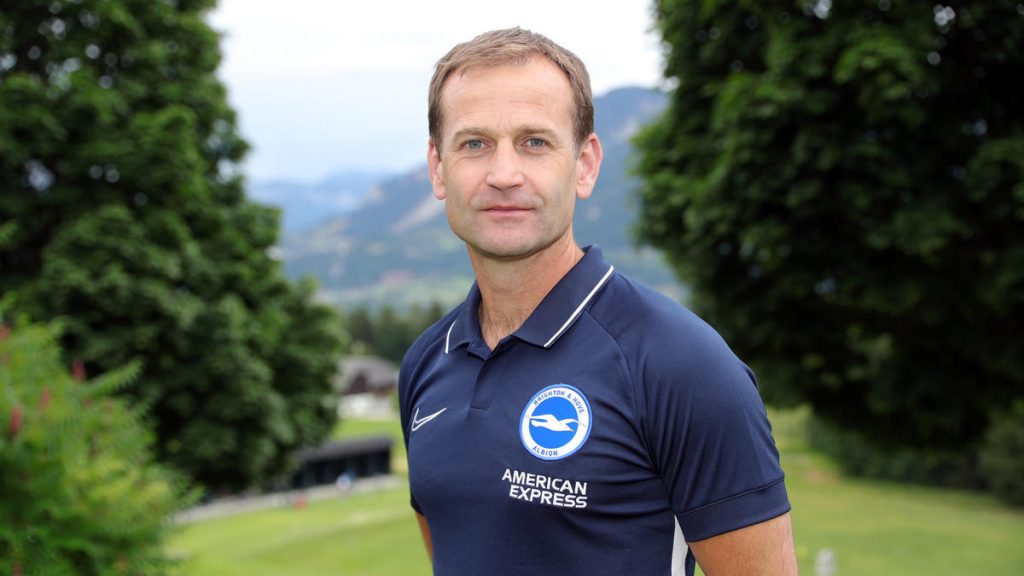
His role is an all-encompassing “proper technical directors job”, with the former Norwich City defender casting his eye over the men’s and women’s first teams, player recruitment, the academy, the medical and sports science departments and player loans. As Ashworth puts it, “I stand in the middle of a wheel and my job is to bring together seven departments, connecting those spokes.”
During his time as the English FA’s technical director, where he made a telling and lasting contribution, Ashworth wrote and delivered a course about the technical director role. Last year, in an insightful interview, he outlined his current take on the position.
“The principle for a technical director, in my opinion, is to look after the medium to long term interests of the football club. It’s not about short-term ‘get a result tomorrow’, it’s to try and make sure our club is set up in a way that other departments supplement and help Hope (Powell) and Graham (Potter).”
At the center of Ashworth’s teachings are the importance of cultivating and maintaining a strong philosophy and culture within the club. He explains that the vision must come from the top-down, and that continuity gives people the confidence to express themselves and flourish.
“If you keep changing the head coach every fourteen months or so – which is about the average lifespan of a manager, unfortunately – going from one philosophy to the next, you’ve got no chance of joining up your loans, your academy, and your recruitment. You end up having to change 16 or 17 players to change your principals.” Ashworth said.
EGUAVOEN AS TECHNICAL DIRECTOR
Since Eguavoen was appointed Technical Director in May 2021, less than a year ago, new players have been surprisingly called up to the national team. They are Abraham Marcus of Portuguese side Feirense CD; Terem Moffi of Belgian side KV Kortrijk; Valentine Ozornwafor of Turkish side Galatasary; Izuchukwu Anthony of Slovakian side, Spartak Trnava center-back; Innocent Bonke of Swedish side Malmö FF; Chidera Ejuke of Russian side CSKA Moscow; Frank Onyeka of English side Brentford; and Calvin Bassey of Glasgow Rangers.
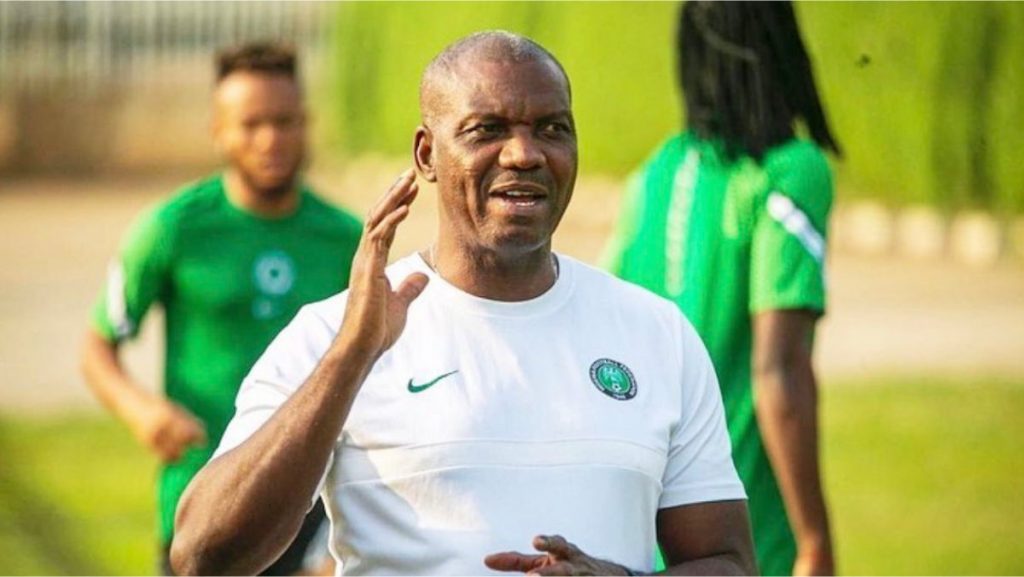
These players were invited by Rohr, but, Eguavoen started his role in the technical committee, meaning, he was around when those players were scouted. He may not have had any input on the players that were invited during that period, but his job was to work hand in hand with the head coach in terms of bringing in players. The bulk of the players that were invited have not made the cut with the Super Eagles, some are for the future and some will be integrated into the setup. Among the list of players invited, it is only CSKA Moscow’s Chidera Ejuke who has been invited by Eguavoen for the AFCON.
Players like Emmanuel Dennis were also identified during this period and would have been part of the AFCON squad if his club Watford had given the green light. Former Akwa United defender, Olisa Ndah who is now with South African side, Orlando Pirates made his Super Eagles and AFCON derby on Wednesday against Guinea Bissau.
Some of the players currently with the national team were part of the youth setup. Kelechi Iheanacho, Kelechi Nwakali, Taiwo Awoniyi excelled and won championships for Nigeria, even Ndah played for the Flying Eagles. Questions could be asked of others who played in the youth system, but not all at youth level makes the cut with the first team.
The job of the technical director is to build a football philosophy and brand for the national teams, including the Super Falcons. Eguavoen has already started building the foundation that will allow Nigeria to have an identity and style of play which will influence the decision of the NFF when they want to hire the next coach. It is not rocket science, it will not happen in a year, but, if we are patience and allow the process to take effect, it will pay off in the next few years, and give Nigeria the platform to dominate Africa and compete with the very best in world football.
The call for Eguavoen to stay beyond the AFCON will only slow down the process and will be a huge mistake in the building process. Countries like Spain, Germany and Belgium went down this route and they are reaping their rewards.
Let us welcome Peseiro🤣 and give him the support to take over. The Portuguese will be answerable to Eguavoen and both of them can work together to bring lasting solution and longevity to our football development and set up. If the head coach does not perform his duties to the satisfaction of the federation, then, NFF will be well equipped to look at another coach who will be suited to the role.
******
Copyright 2021 @ The Athletic NG. Permission to use quotations from this article is granted subject to appropriate credit being given to https://theathletic.com.ng/ as the source.

